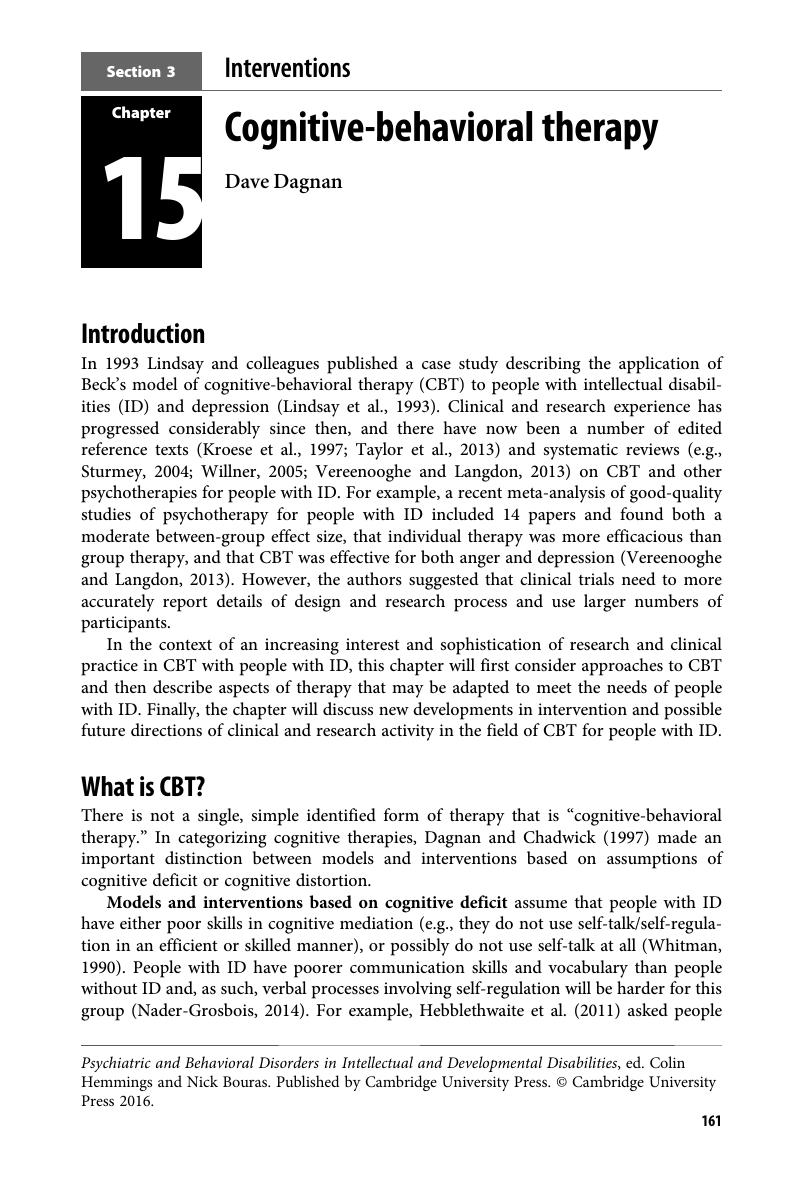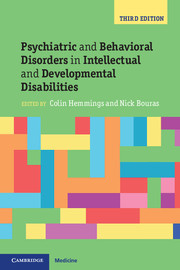Book contents
- Psychiatric and Behavioral Disorders in Intellectual and Developmental DisabilitiesThird Edition
- Psychiatric and Behavioral Disorders in Intellectual and Developmental Disabilities
- Copyright page
- Contents
- Contributors
- Preface
- Section 1 Foundations
- Section 2 Mental disorders
- Section 3 Interventions
- Chapter 13 Psychopharmacology
- Chapter 14 Psychodynamic psychotherapy
- Chapter 15 Cognitive-behavioral therapy
- Chapter 16 Behavioral approaches
- Section 4 Special topics
- Section 5 Services
- Section 6 Reflections
- Index
- References
Chapter 15 - Cognitive-behavioral therapy
from Section 3 - Interventions
Published online by Cambridge University Press: 05 March 2016
- Psychiatric and Behavioral Disorders in Intellectual and Developmental DisabilitiesThird Edition
- Psychiatric and Behavioral Disorders in Intellectual and Developmental Disabilities
- Copyright page
- Contents
- Contributors
- Preface
- Section 1 Foundations
- Section 2 Mental disorders
- Section 3 Interventions
- Chapter 13 Psychopharmacology
- Chapter 14 Psychodynamic psychotherapy
- Chapter 15 Cognitive-behavioral therapy
- Chapter 16 Behavioral approaches
- Section 4 Special topics
- Section 5 Services
- Section 6 Reflections
- Index
- References
Summary

- Type
- Chapter
- Information
- Publisher: Cambridge University PressPrint publication year: 2016

